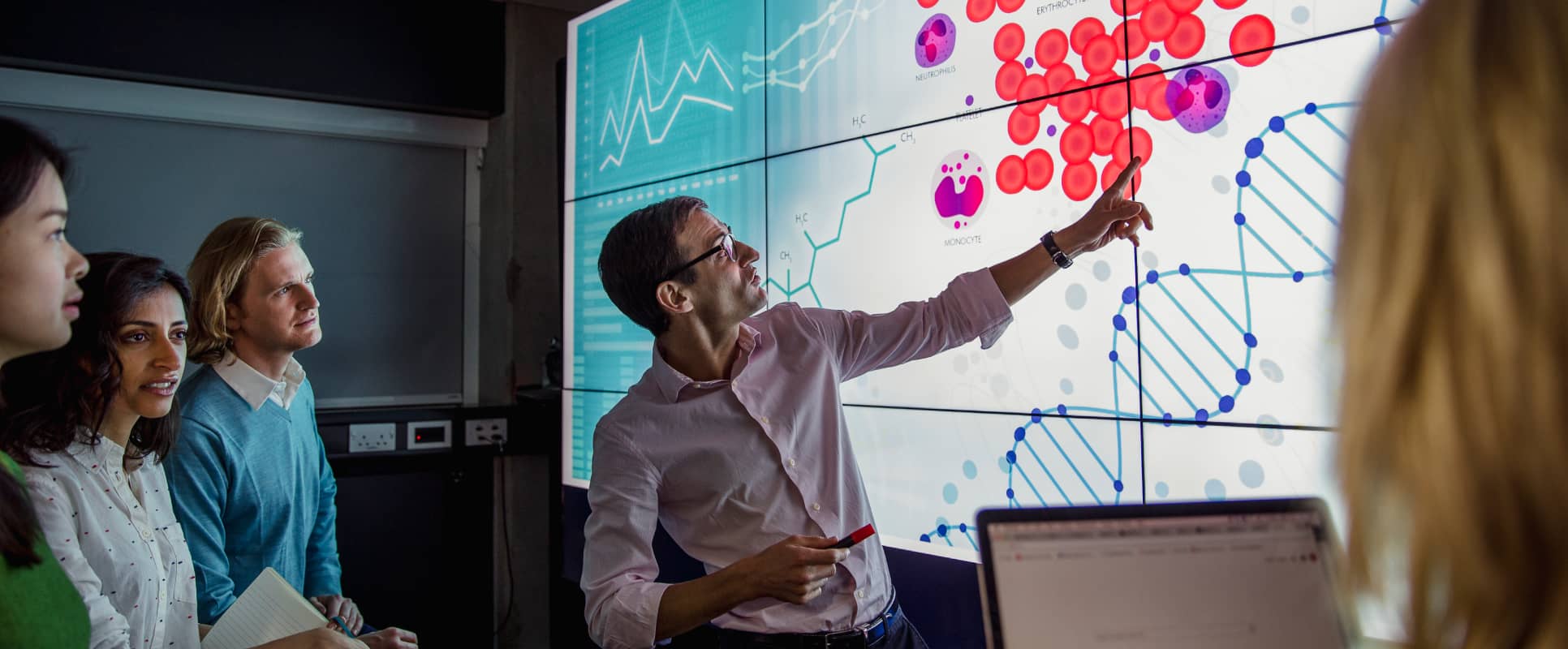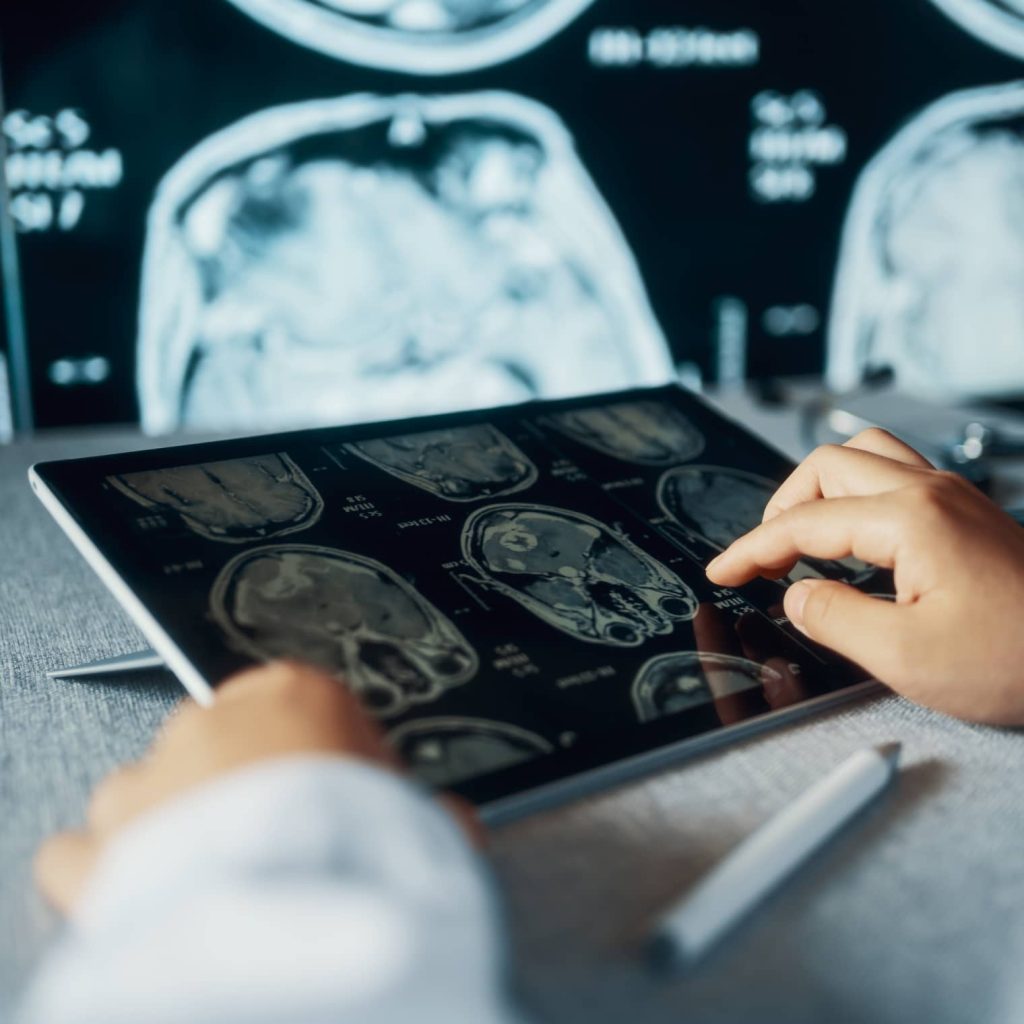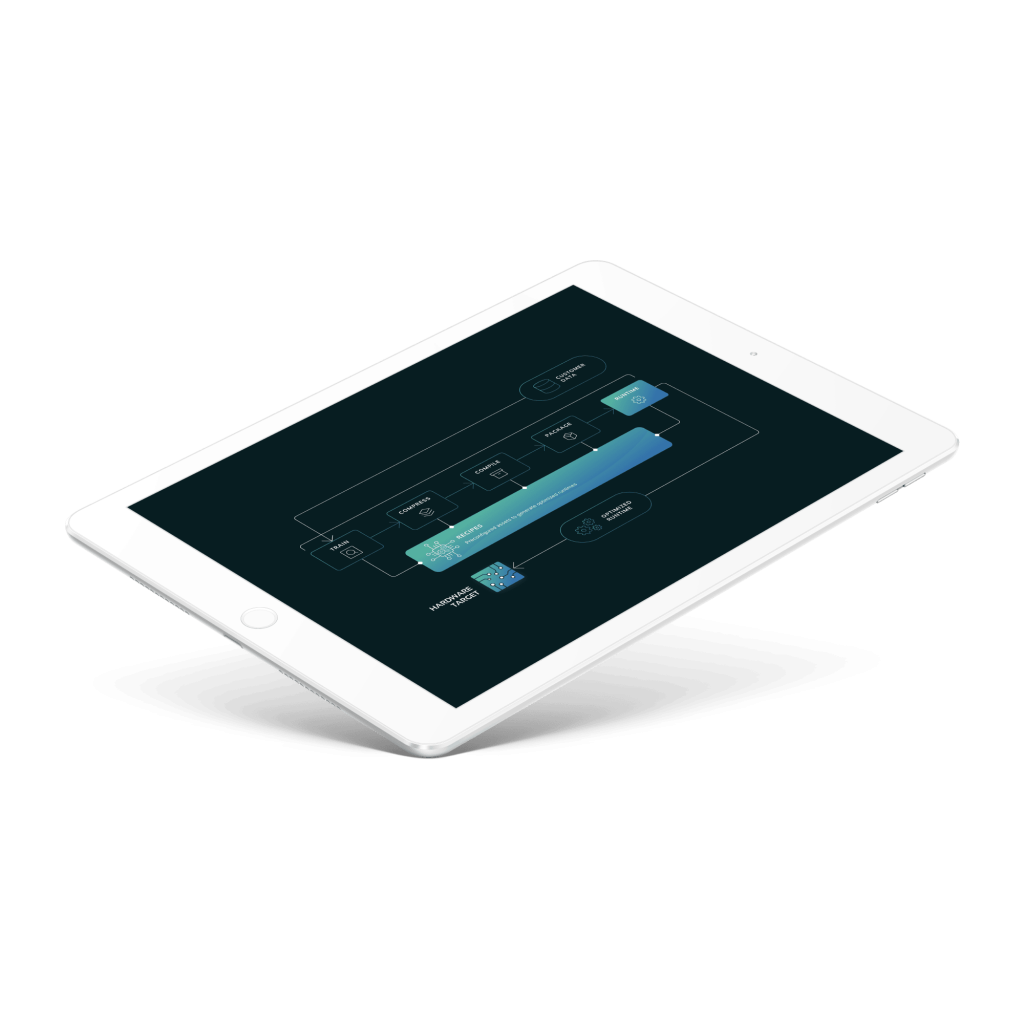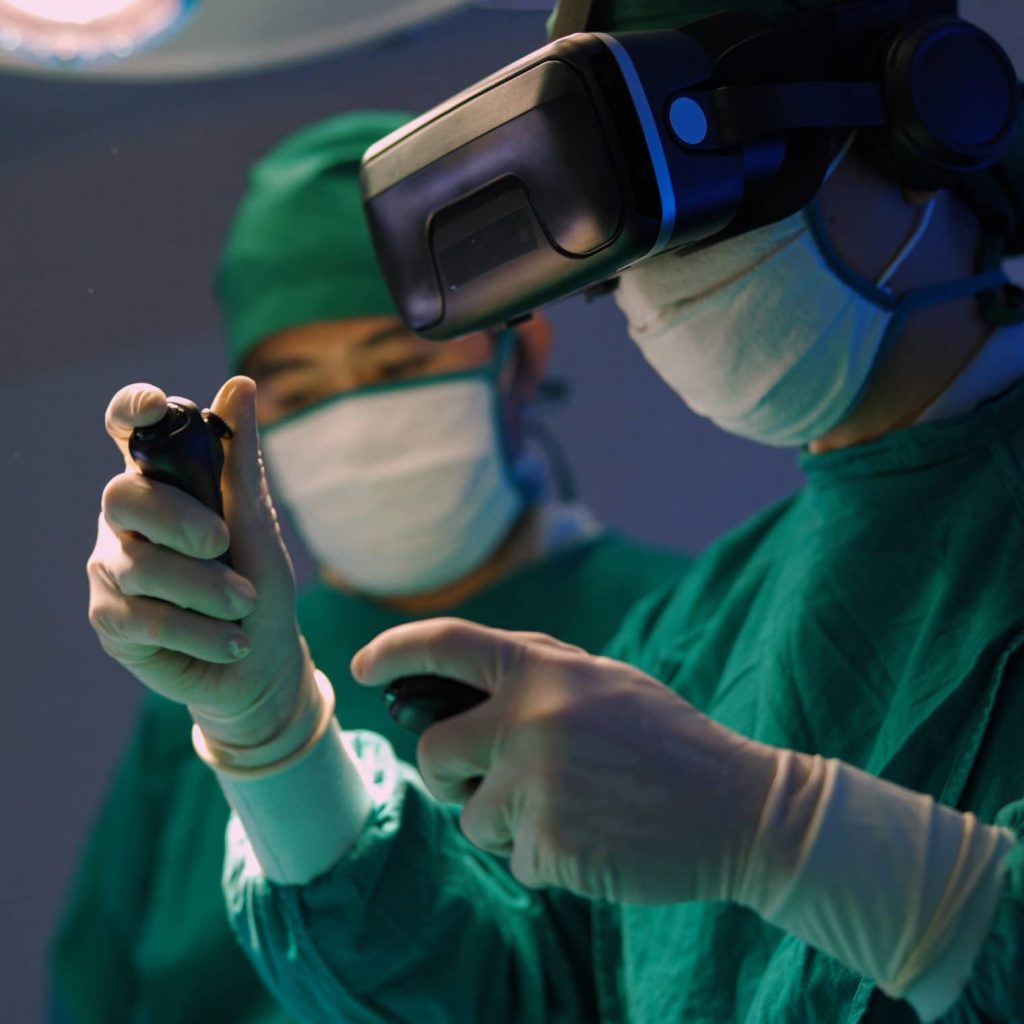Revolutionising healthcare operations with AI
The healthcare sector is undergoing profound changes due to the introduction of AI. This technology is impacting almost every aspect of the field, enhancing efficiency and outcomes. It’s accelerating diagnosis with greater accuracy and improving treatment plans to be more personalised. AI and machine learning applications for large data sets drive research and public health predictions forward. On a broader scale, AI software development is revamping healthcare facility operations, making them more efficient and safer.
The AI revolution in the healthcare industry is here. Let’s explore its applications and the benefits it brings to the industry.
Machine learning supports innovative diagnosis and treatment
Machine learning, a subset of AI, has evolved diagnosis and treatment relatively quickly. It’s the best tool to use when trying to find patterns in sets of data, which the healthcare field is known to have. Machine learning algorithms can process massive amounts of clinical data to make predictions regarding medical outcomes. Data science services help providers improve treatments and reduce costs. Here are some specific applications for diagnosis and treatment.
Medical image analysis
The amount of medical imaging that needs review to determine a diagnosis grows larger every day, putting a significant strain on clinicians and causing delays. It’s been a long-standing concern that AI has been part of for decades. The first application of AI in diagnostic imaging dates back to the 1980s. It has advanced substantially since, but the development of algorithms follows the same path as it always has—deep learning.
Machine learning algorithms “learn” from large data sets of what to look for on a CT scan or MRI. As they learn, they become better at it, often as accurate or more than humans.
- Healthcare players uses this type of analysis for:
-
- Cancer detection in any organ, including the brain.
- Detecting signs of a stroke.
- Assessing the risk or presence of cardiovascular disease.
- Classifying moles or skin lesions as cancerous or not.
- Finding indications of diabetic retinopathy in the eyes.
Greater adoption of machine learning in machine imaging is growing, but it’s a formal process where accuracy is everything. For example, the U.S. Department of Food and Drug Administration will only approve it if it’s right 80-90% of the time. Another example is a study of AI models that learned from MRI-scanned images of brain tumours. The technology classified them correctly 98.56% of the time.
The benefits of applying AI in medical imaging are many. It accelerates review and diagnosis, reduces costs, and finds things the human eye may miss (especially if those eyes are overworked).

Precision medicine
Precision medicine has, for the most part, been limited. The costs related to it weren’t accessible to most, but AI ushers in a phase of democratised precision medicine. Every person has a unique genetic makeup, conditions, and medical history. All these things impact the treatment of a disease and its effectiveness.
AI-enabled precision medicine can eliminate the assumptions for physicians. The treatment plan is now at the individual level rather than what works for most people.
Using AI to sequence DNA, for example, has been substantial for leukaemia treatment. It can define the specific variant, which is critical in recommending treatment. These blood cancers are common and have high rates of death. Researchers in the space found AI to be a key factor in the ability to deliver precision medicine for leukaemia patients.
Precision medicine will significantly impact the survivability of cancer or other diseases. It guides physicians to create treatments that have a better chance of working. Overall, this reduces the costs of healthcare delivery as well.
Conversational AI can engage patients, driving better outcomes
Outreach to patients is often a time-intensive, manual process. Health plans and providers struggle to reach people and support them with their health problems. A lack of participation in one’s own health has adverse effects, such as medication nonadherence, not managing chronic diseases, and unhealthy lifestyles. When people finally realise they need care, they end up in emergency departments, typically the most expensive setting.
This disengagement costs the healthcare ecosystem incredibly, and developing engagement strategies has been challenging. Conversational AI may be the answer. Some companies are using conversational AI to communicate with individuals about health concerns. It’s an easy, convenient way for this interaction.
Taking this concept further can improve outcomes for patients as it could play a role in reminding patients to take their medications, acting as a follow-up after discharge with the care plan, and ensuring patients make their next appointments.
AI powers intelligent automation to enable scaling and reduce burnout
The AI in healthcare conversation also includes automation capabilities. Using healthcare software like EHRs (electronic health records) can be made easier with the help of automation.
- By applying intelligent automation to these systems, you can:
-
- Eliminate repetitive, rules-based tasks.
- Streamline the access to patient data across applications.
- Decrease the time to care interval.
- Remove administrative burdens.
- Improve EHR satisfaction by clinicians who can use it to make better decisions regarding treatment.
- Reduce medical errors with an algorithm that can scan EHR data looking for issues.
Applications like EHR software, mHealth apps and telemedicine solutions benefit all healthcare stakeholders and enable providers to perform more meaningful work with patients. Reduced costs, consolidated data, and more seamless processes also lead to operational efficiency.

AI as a predictor for public health
Another promising application of AI in healthcare is using it to collect and analyse data from diverse sources to empower public health predictions. This involves a lot of cooperation in sharing data, which isn’t always possible. The key is real-world data, and when data scientists have it, the benefits include:
- Preventing and mitigating the spread of disease
- Enabling localised resources to act more efficiently
- Identifying and monitoring outbreaks
- Forecasting how outbreaks or public health emergencies could progress
- Accelerating action plans
The next horizon for AI will likely point in this direction, taking into account the lessons learned and the reality of the pandemic.
Join the AI in healthcare revolution
The healthcare industry relies on technology, and AI is driving it toward the future. Every area of healthcare has much to gain from leveraging AI and machine learning. AI technology can accelerate diagnoses, enabling personalised treatment plans, streamlining medical imaging diagnostics, and supporting precision medicine. It enhances patient engagement through conversational AI and automates tasks to reduce administrative burdens.
Furthermore, AI facilitates advanced predictive modelling in public health, making it crucial for advancing healthcare and promising improved care quality and operational efficiency. The era of AI in healthcare is already here, reshaping healthcare delivery and public health globally.
AI can assist healthcare professionals in making better clinical decisions, reducing human error and judgement, and improving overall care.
AI is revolutionising the healthcare industry by enabling various applications, such as medical imaging analysis, predictive analytics for disease risk assessment, and drug discovery acceleration. Through AI algorithms, medical images can be analysed for improved diagnosis, patient data can be used to predict disease risks, and vast datasets can be searched for potential drug candidates. Furthermore, AI-powered virtual health assistants are improving patient access to care, and predictive analytics are being used to streamline hospital operations. With continued advancements in AI, its integration into healthcare promises to enhance diagnostic accuracy, optimise resource allocation, and drive medical innovation.
Related Insights

















